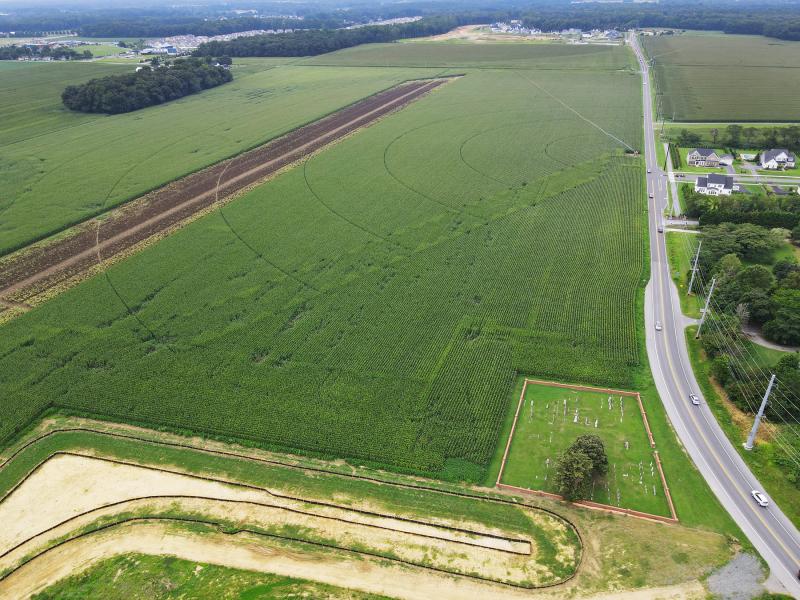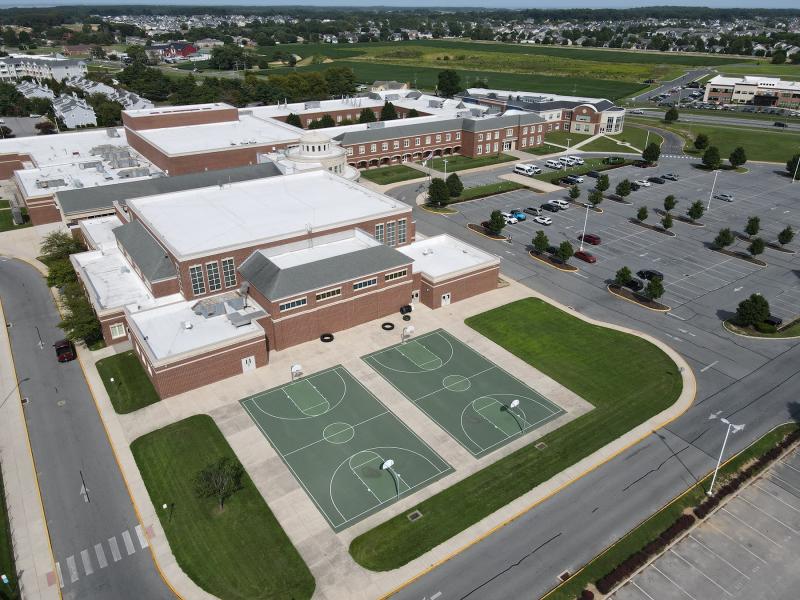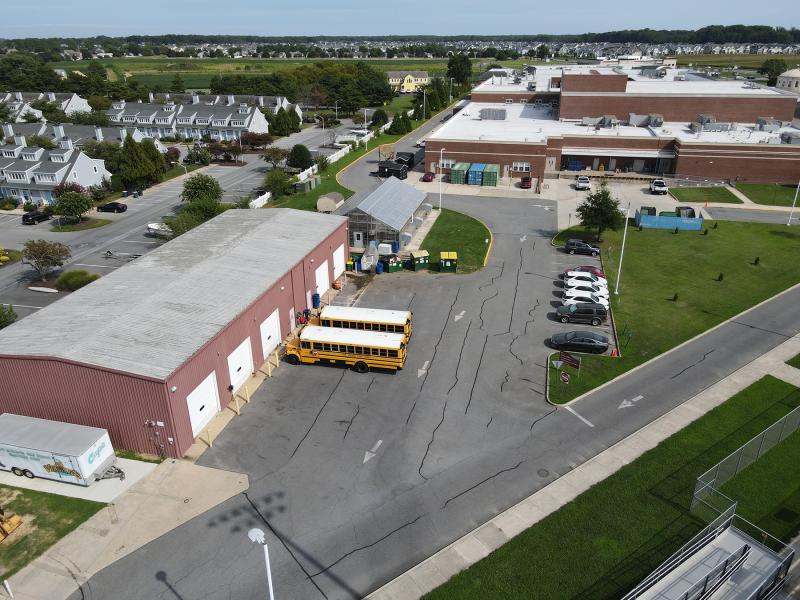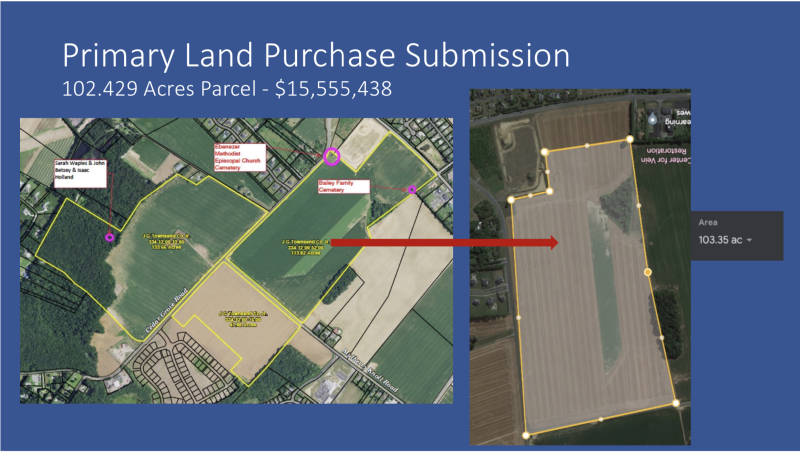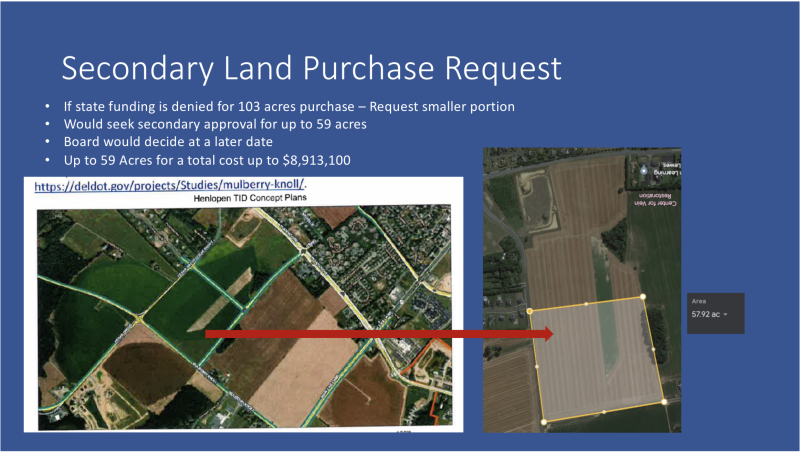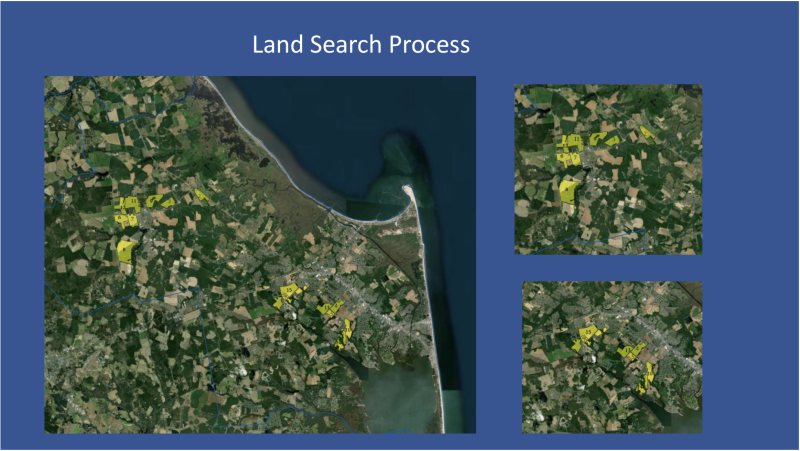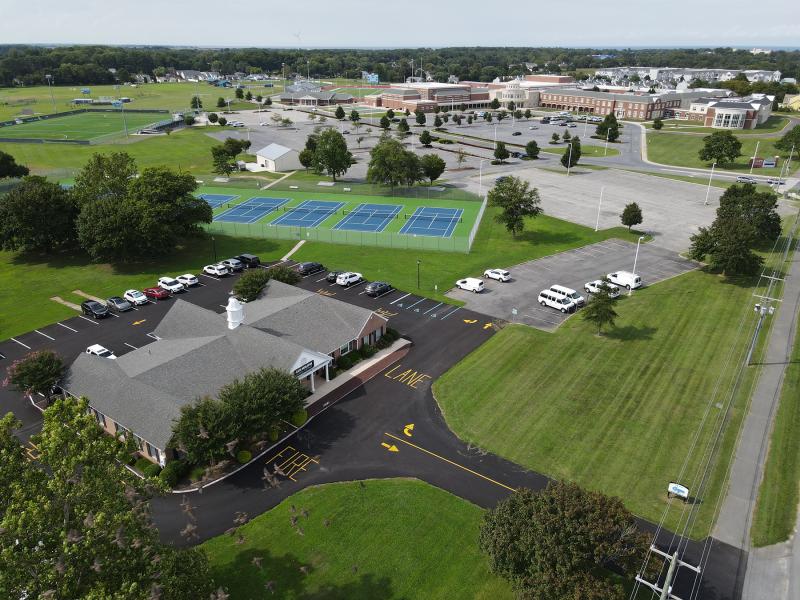With student enrollment steadily increasing in Cape schools, officials plan to recommend sending two certificates of necessity to the state to meet the district’s immediate needs.
At a special board meeting Aug. 16, Director of Operations Jason Hale expanded upon information he provided at the July 21 board meeting. With a University of Delaware study predicting 7,000 district students by 2032, he said, land purchase is a priority for the district.
The district office must be moved so the high school can expand, Hale said, as more classroom space is required. Currently, he said, the district essentially operates two district offices, with 41 employees at the Kings Highway office and another 40 employees at the Fred Thomas Building in Lewes.
The district launched an extensive search process for land several years ago, Hale said, and sent 16 letters to large-area landowners. Only one responded, he said, which is the property officials are planning for today, at Plantation and Cedar Grove roads.
Superintendent Bob Fulton said the district worked with state officials to determine what properties are viable for new schools or school projects.
For instance, Hale said, properties must have infrastructure in place, and water and sewer available. The district looked at land north of Route 16 and west of Route 1, he said, as well as the south corner of Routes 16 and 30, and east of Route 30.
Hale said the district is planning for two certificates of necessity, pending board approval, that must be submitted to the state by Thursday, Aug. 31.
“We know we need more space; we absolutely need more space,” Hale said.
The first request would detail the district’s need for a land purchase, specifically the 103-acre property at Cedar Grove and Plantation roads. If not approved, the district would request a smaller portion of that parcel, up to 59 acres, he said.
The cost for the 103-acre property would be $15.5 million, which would be funded on a 60/40 state/local basis, he said. If state funding is denied, he said, the district would seek secondary approval for the smaller portion, up to 59 acres, which would cost $8.9 million and be funded locally, he said.
This certificate of necessity would include requests for a district office, natatorium complex and bus maintenance facility, Hale said. A 30,000-square-foot district office would cost about $20 million, he said.
The bus facility would centralize vehicles in one location, with a 4,000-square-foot bus barn, space for 75 vehicles, all equipment and room to expand, he said. Estimated cost is from $5.4 million to $5.9 million.
A 40,000-square-foot natatorium would house a 10-lane Olympic-sized pool, locker room facilities, 750-seat spectator capacity and 300 parking spaces. Estimated cost is $37 million to $40 million.
The district held referendums in 2014, 2016 and 2018, Fulton said, based on task force recommendations that included the need for a new district office. Officials wanted to make sure classroom space and schools were taken care of first, before focusing on a district office, he said.
A second certificate of necessity would request site additions and renovations at Cape High, Hale said, as the building is currently over capacity and growing. Additional parking and water retention would be needed with additions, he said.
The high school sits on about 60 acres, Hale said. The district office comprises six of those acres, including the tennis courts, which would need to stay there or be relocated.
A two-story, 24-classroom expansion could be built where the outside basketball court is, Hale said. The district is exploring ways to use space under bleachers, as well as athletic field amenities and renovations. All ideas are just concepts at this time, Hale noted.
Costs for the Cape High expansion, including demolition of the district office, are about $68.7 million. The state would pay 60%, he said, and local cost would be 40%.
Cape High was just expanded in 2021, when a two-story wing was constructed to hold 400 students in 20 classrooms and four Consortium spaces. The project was approved by 73% of voters as part of the 2018 referendum.
Hale said he would present more definitive information and recommendations for moving forward at the Thursday, Aug. 24 monthly meeting, at which time the board could possibly vote to approve submitting the certificates of necessity to the state.
The state will approve or deny the requests in late November, Hale said, at which time the board will determine a path forward, including a possible referendum. The district will assemble a facilities task force to help guide future planning, Fulton said.
With the need to build more facilities, board member Janet Maull-Martin said it was imperative for district officials to stay on the path toward the establishment of school impact fees, which would assist in funding school projects and alleviate taxpayer costs.
At the September or October meeting, Fulton said, the district will present information regarding impact fees, which the county now has the ability to enact after the passage of legislation and the support of others.
Sponsored by Sen. Russ Huxtable, D-Lewes, Senate Bill 186 gives Sussex County the tool needed to enact a voluntary school assessment to address the impact of residential development on school capacity.
Regarding landowners who did not respond to the district’s queries, board member Jessica Tyndall, who represents the greater Milton area, said that she implores them to speak with school officials in the future, as the problem is not going away.
“I know they would like to make money by selling homes to all these people moving here, but those children will need to go to school somewhere, and we need to start planning for that in the future,” she said.
